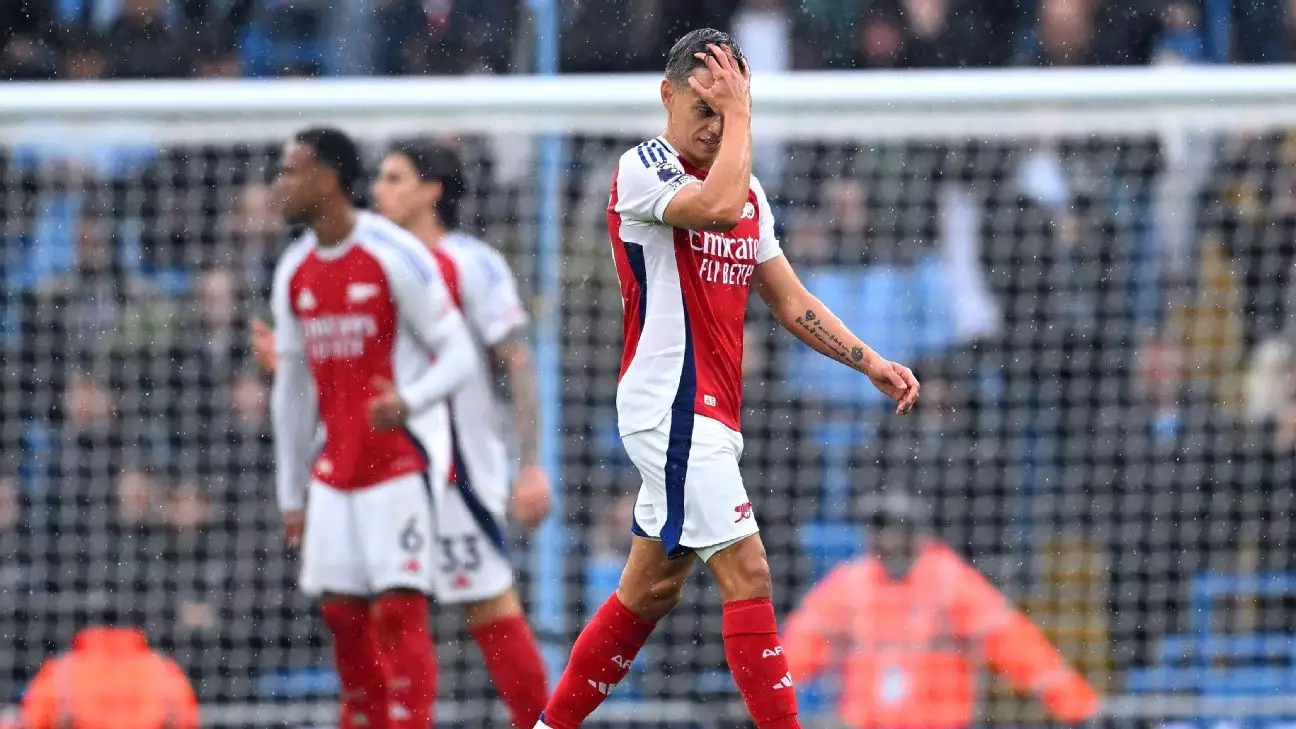In a gripping encounter between Arsenal and Manchester City, the stage was set for a classic Premier League showdown. However, the match quickly became a focal point for discussions around referee decisions, player discipline, and the emotional resilience displayed by the teams involved. Under the watchful eye of manager Mikel Arteta, who found himself navigating a labyrinth of controversies, Arsenal finished the match with a controversial 2-2 draw.
The match took a significant turn just before halftime when Arsenal’s Leandro Trossard received a second yellow card, leaving his team with ten men. After a series of tactical fouls by both sides, Trossard fouled Bernardo Silva and then, in an act of frustration, kicked the ball away. This prompted referee Michael Oliver to issue a crucial dismissal, a moment that left fans and analysts pondering the significance of disciplinary actions in the Premier League this season. Arteta, citing the incident as symptomatic of broader trends, remarked intriguingly, “I’m expecting 100 Premier League games to be, 10 against 11 or nine against 10 this season.”
This statement reflects not just his exasperation with repeated officiating decisions but serves as a broader commentary on the challenges managers face navigating the often unpredictable terrain of refereeing in modern football.
Despite the setback, Arsenal demonstrated remarkable character. In the second half, City unleashed relentless pressure, amassing twenty shots as they searched for an equalizer. Yet, the Gunners held firm, showcasing the unity and spirit that has become a hallmark under Arteta’s leadership. The match demands a deeper look into how teams react to adversity—Arsenal’s ability to weather the storm and maintain composure was commendable. Arteta’s pride in their performance was palpable, stating, “The way the team competes is unbelievable.” This statement underscores the growing resilience within the squad, suggesting that even in the face of adversity, there exists a determination to rise and perform.
Another layer to this encounter is found within the discourse surrounding match officiating, specifically regarding time management. Arsenal players and fans were frustrated as the match extended deep into additional time, culminating in John Stones’ dramatic equalizer in the 98th minute. Arteta, while proud of his team’s effort, could not resist a pointed critique of the additional time allocated. Such discussions around time can significantly influence the dynamics of closely contested matches and shed light on the need for more coherent guidelines for referees.
In the arena of elite football, every second counts, and the management of these moments can determine the outcome of critical matches. Arteta’s role as a spokesperson for his team comes not only in defense of his players but also in advocating for better officiating standards throughout the league.
As the league unfolds, the implications of this match extend far beyond the immediate standings. With Manchester City retaining their position at the top of the table, Arsenal remains in a competitive fourth place— a testament to the potential that Arteta’s side possesses. The Gunners’ resilience, highlighted in this match, positions them favorably as they continue their campaign.
The critical discourse surrounding officiating, particularly regarding red cards and match management, will likely dominate discussions among fans, analysts, and managers alike as the season progresses. Mikel Arteta’s candid analysis will resonate with many in the footballing community as they anticipate a season filled with unforeseen challenges.
This riveting encounter serves as a microcosm of the ongoing complexities of the Premier League. As teams navigate not only the physical demands of the sport but also the psychological challenges posed by refereeing inconsistencies, it becomes clear that resilience will be a defining trait for contenders. For Arsenal, the road ahead looks promising, albeit fraught with challenges that test their mettle and unity. As supporters rally behind their team, one thing is certain: every match will be a testament to the essence of competition in football.

